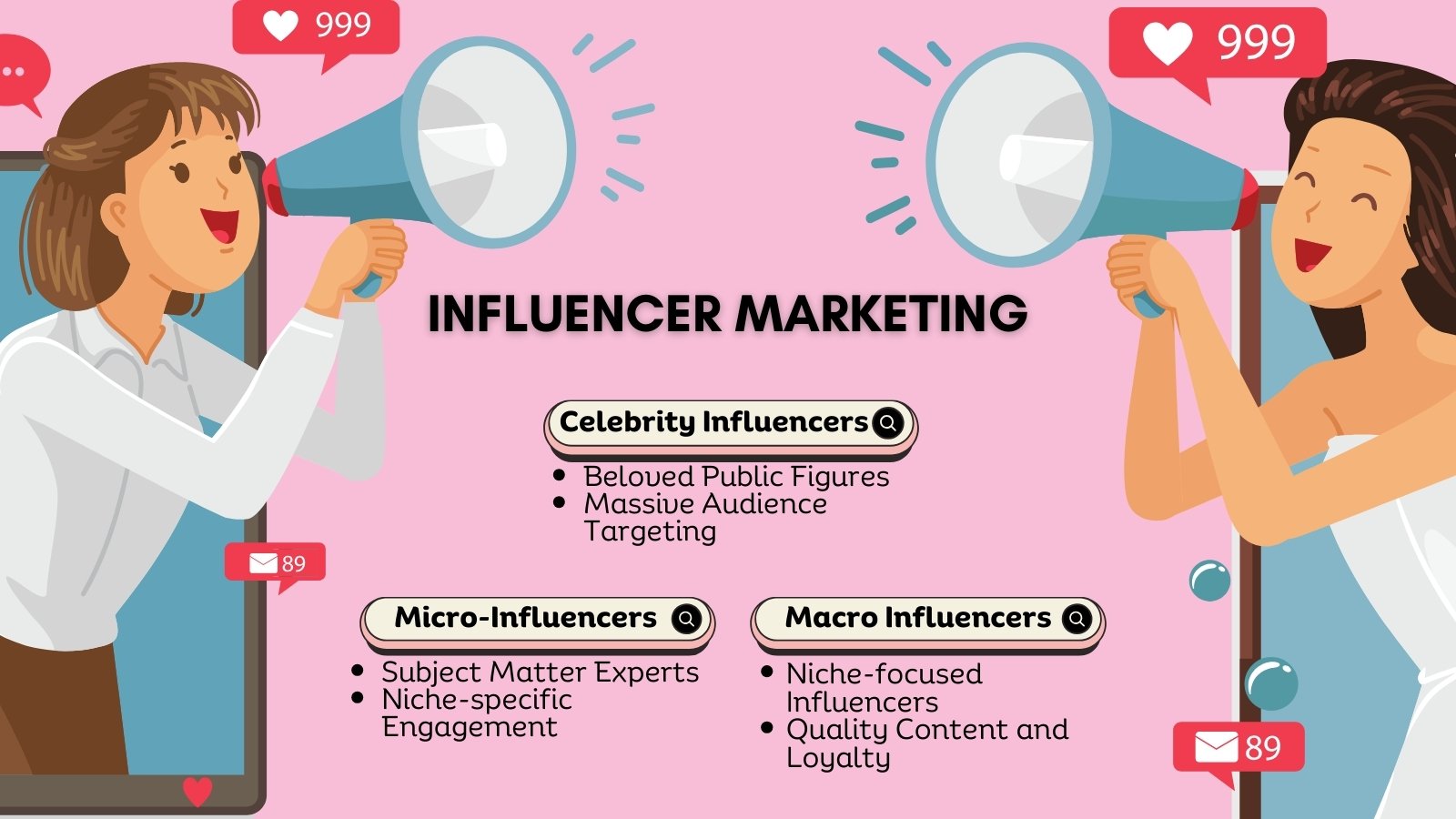In the rapidly evolving world of advertising, influencer marketing has emerged as a powerful tool for brands to connect with their audience. This strategy leverages the reach and authenticity of social media influencers to promote products and services, creating a more personal and engaging form of advertising. Let’s explore why influencer marketing is considered the new age of advertising, its benefits, challenges, and how brands can effectively implement it.
The Rise of Influencer Marketing
With the advent of social media platforms like Instagram, YouTube, Tik Tok, and Twitter, influencers—individuals with a significant following and the ability to influence their audience’s opinions and purchasing decisions—have gained prominence. Unlike traditional celebrities, influencers often build their followings through authentic content, relatability, and niche expertise.
Brands quickly recognized the potential of these influencers to reach highly targeted audiences in a more genuine way than traditional ads. Influencer marketing has grown exponentially, with global spending on influencer campaigns expected to reach $15 billion by 2022.
Benefits of Influencer Marketing

- Authenticity and Trust: Influencers are seen as more relatable and trustworthy than traditional advertisements. Their followers value their opinions and recommendations, leading to higher engagement and conversion rates.
- Targeted Reach: Influencers often cater to specific niches, allowing brands to target their ideal audience more precisely. This targeted approach can lead to higher ROI compared to broad-spectrum advertising.
- Cost-Effective: Compared to traditional advertising channels, influencer marketing can be more cost-effective, especially for small and medium-sized businesses. Collaborations with micro-influencers (those with smaller, highly engaged followings) can yield significant results without breaking the bank.
- Content Creation: Influencers are skilled content creators. Collaborating with them not only provides exposure but also generates high-quality content that brands can repurpose across their own channels.
Challenges of Influencer Marketing

- Finding the Right Influencer: The success of an influencer campaign hinges on choosing the right influencer. Brands need to ensure the influencer’s audience aligns with their target market and that the influencer’s values match the brand’s.
- Authenticity vs. Promotion: Maintaining authenticity is crucial. If followers sense that an influencer is promoting a product solely for financial gain, it can backfire. Brands and influencers must strike a balance between promotion and genuine endorsement.
- Measuring ROI: Tracking the effectiveness of influencer campaigns can be challenging. Brands need to establish clear metrics and use tools to measure engagement, reach, and conversion rates accurately.
How to Implement an Effective Influencer Marketing Strategy

- Define Your Goals: Start by outlining the objectives of your campaign. Are you looking to increase brand awareness, drive sales, or boost engagement? Clear goals will guide your strategy and help measure success.
- Research and Select Influencers: Use tools and platforms to find influencers who align with your brand and campaign goals. Consider factors like audience demographics, engagement rates, and previous collaborations.
- Build Relationships: Approach influencer partnerships as long-term relationships rather than one-off transactions. Building a genuine relationship with influencers can lead to more authentic endorsements and long-term loyalty.
- Create Compelling Campaigns: Collaborate with influencers to create engaging content that resonates with their audience. Provide creative freedom while ensuring the messaging aligns with your brand values.
- Monitor and Measure: Use analytics tools to track the performance of your campaign. Monitor engagement rates, website traffic, and sales conversions to evaluate the ROI and adjust your strategy as needed.
Conclusion
Influencer marketing represents a significant shift in the advertising landscape, offering brands a unique way to connect with consumers through authentic and engaging content. By leveraging the reach and influence of social media personalities, brands can enhance their visibility, build trust, and drive meaningful engagement. However, success in influencer marketing requires careful planning, strategic partnerships, and a focus on authenticity. As this marketing strategy continues to evolve, it remains a powerful tool in the new age of advertising.

